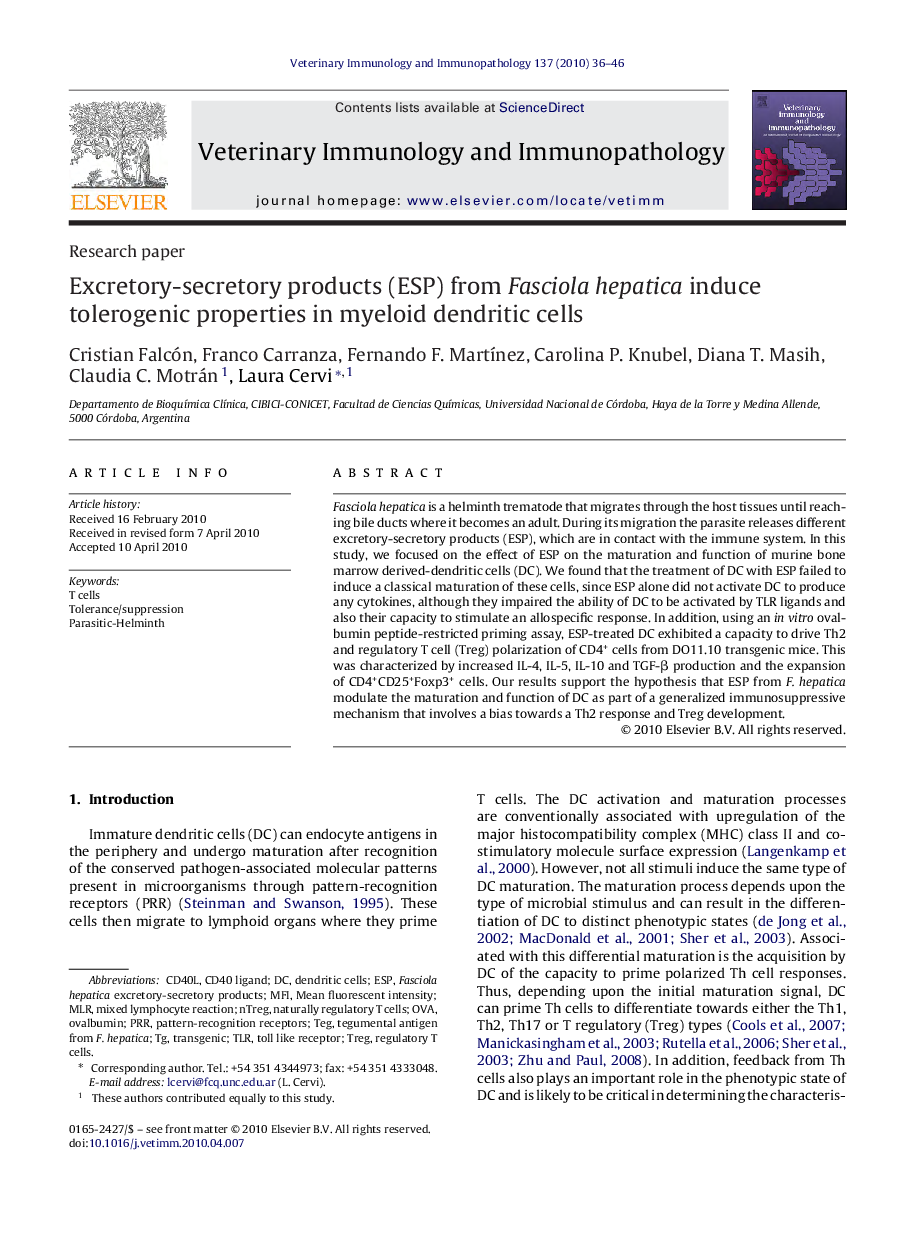| Article ID | Journal | Published Year | Pages | File Type |
|---|---|---|---|---|
| 2462448 | Veterinary Immunology and Immunopathology | 2010 | 11 Pages |
Fasciola hepatica is a helminth trematode that migrates through the host tissues until reaching bile ducts where it becomes an adult. During its migration the parasite releases different excretory-secretory products (ESP), which are in contact with the immune system. In this study, we focused on the effect of ESP on the maturation and function of murine bone marrow derived-dendritic cells (DC). We found that the treatment of DC with ESP failed to induce a classical maturation of these cells, since ESP alone did not activate DC to produce any cytokines, although they impaired the ability of DC to be activated by TLR ligands and also their capacity to stimulate an allospecific response. In addition, using an in vitro ovalbumin peptide-restricted priming assay, ESP-treated DC exhibited a capacity to drive Th2 and regulatory T cell (Treg) polarization of CD4+ cells from DO11.10 transgenic mice. This was characterized by increased IL-4, IL-5, IL-10 and TGF-β production and the expansion of CD4+CD25+Foxp3+ cells. Our results support the hypothesis that ESP from F. hepatica modulate the maturation and function of DC as part of a generalized immunosuppressive mechanism that involves a bias towards a Th2 response and Treg development.
